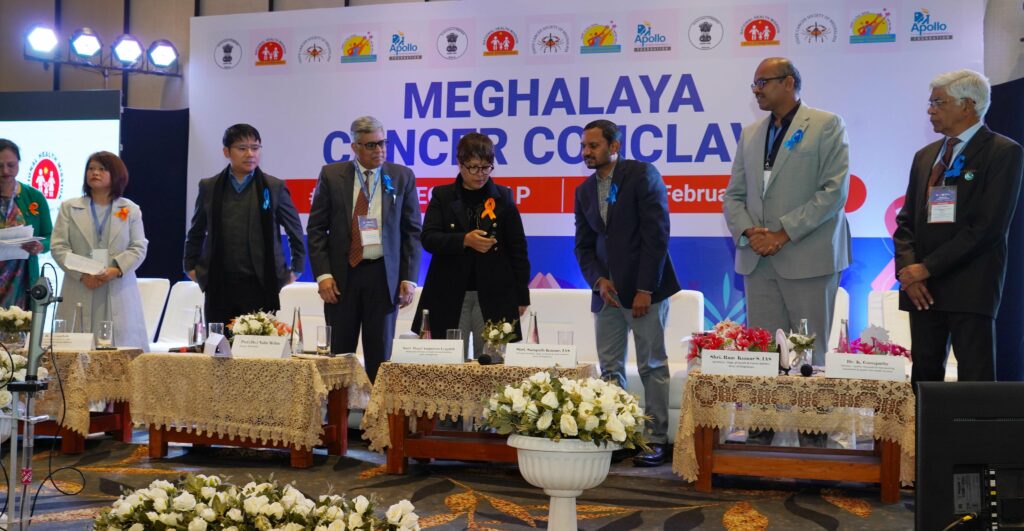The Government of Meghalaya in collaboration with the Apollo Telemedicine Networking Foundation (ANTF) today organised the Meghalaya Cancer Conclave 2024 on the theme ‘Close the Care Gap’ at the Cosmos Hall, Hotel Courtyard Marriott, Shillong. Dr Mazel Ampareen Lyngdoh, Minister of Health & Family Welfare graced the programme as the Chief Guest.

In her address, Dr. Mazel Ampareen Lyngdoh emphasized the urgency of action, urging stakeholders to move beyond discussions and implement effective measures. She highlighted the importance of ensuring accessibility to healthcare through initiatives like the Meghalaya Health Insurance Scheme (MHIS) and emphasized the significance of prevention and early detection in combating cancer.
Sampath Kumar, Principal Secretary, Department of Health & Family Welfare, highlighted the need for comprehensive solutions to address the challenges in cancer care. He emphasized the role of the conclave in facilitating exchanges of ideas and experiences.
Dr. Anisha Mawlong, HOD, Radiation Oncology Department, Civil Hospital Shillong, provided insights into Meghalaya’s journey in tackling cancer. Poignant testimonials were also shared by cancer survivors, served as powerful reminders of the human aspect of cancer care, highlighting the resilience, courage, and determination of individuals confronting the disease.
During the event, the Health Minister distributed Mobile Endoscopy Units as part of the Meghalaya Mission Cancer Prevention & Early Detection and also launched a promotional video of the First Cancer Care Project.
Keynote speakers at the conclave included Joram Beda, Commissioner & Secretary, Department of Health & Family Welfare, Prof (Dr) Nalin Mehta, Director, NEIGRIHMS, and Dr. K. Ganapathy, among others.
Discussions at the conclave encompassed various aspects of cancer care including early diagnosis, access to quality treatment, epidemiology, technology-enabled screening, supportive care, research, media’s role, and survivorship.
The Meghalaya Cancer Conclaves 2024 signifies a significant stride towards building a resilient and compassionate ecosystem for cancer care in the region. It underscores the importance of collaboration and shared knowledge in bridging the care gap and providing hope to those affected by cancer.

